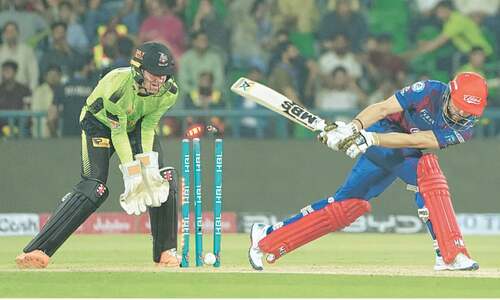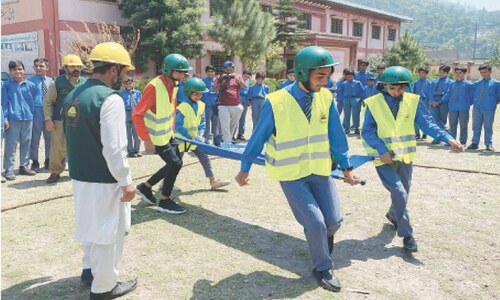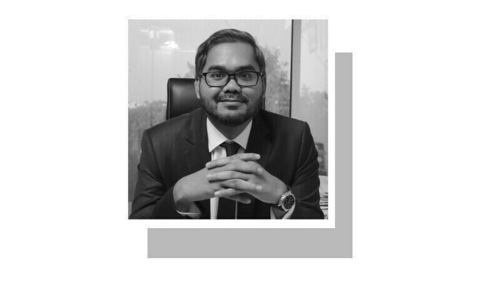According to an anecdote related by Leo Tolstoy, a squatting and strangely gesticulating man he spotted by the side of the road and prematurely labelled a madman turned out to be engaged in a useful enterprise: sharpening his knife on a rock. This story, later often told as a homily by the Russian revolutionary leaders Vladimir Lenin and Leon Trotsky (in the present volume) underlined the necessity of drawing sharp theoretical distinctions as a prelude to revolutionary politics, regardless of how obscure and sectarian this activity may seem to those looking at the struggle from the outside.
For Trotsky, the story has added salience in its applicability to Joseph Stalin — the man who sidelined him en route to becoming the leader of the world’s first socialist state. Stalin, according to the author of this newly edited biography, had no time for theory and partisan debate (which he regarded as a tempest in a teapot), because he was a mediocre, backward provincial, obsessed with self-aggrandisement and covering up his numerous psychological flaws. But as he bore the legitimacy of an Old Bolshevik, Trotsky argues, these traits made Stalin the ideal expression of the bureaucratic machine that ultimately buried the Russian Revolution.
However one feels about the Russian Revolution and its leading players, it is hard to deny that disputes among socialist groupings and parties in the early years of the 20th century had a decisive impact on the trajectory of the Soviet Union and later socialist regimes, as well as on the global system throughout the interwar and Cold War periods. To what degree those disagreements — as well as the conflict between this book’s author and its subject — still constitute salient political issues and not historical arcana is a separate question. To Alan Woods — the book’s editor and translator, and leading theoretician of the UK-based International Marxist Tendency — that clash still remains highly relevant.
Eighty years in the making, the biography of Joseph Stalin by his rival and contemporary Leon Trotsky is finally complete
The completion of Trotsky’s final work, unfinished as a result of the author’s death at the hands of an assassin in Stalin’s employ, is a product of a multiyear labour of love for Woods who had to rework pieces of the manuscript housed at the Trotsky archive at Harvard University. For Woods, the task was made necessary by the perversion of the manuscript by Charles Malamuth, the translator and redactor of the 1946 English-language edition.
Malamuth — a figure close to many of Trotsky’s American sympathisers who evolved into anti-Soviet Cold War liberals — comes in for Woods’s criticism for trying to fit Trotsky’s text into his own ideological framework. The removal of Malamuth’s editorialising, the insertion of unpublished fragments from the archives, as well as Woods’s own explications, constitute the main distinctions of the new edition. Whether they improve and complete the text is open to debate. Unlike Malamuth, Woods is Trotsky’s disciple, but his own interpolations detract from the text stylistically — a major drawback as Trotsky himself made it a point to castigate Stalin for his lack of style in this very work. Moreover, the attempt to organise unfinished sections by chronologically arranging various fragments from the archives makes the book rather bloated.

But does the substance of the biography still bear political resonance today, on the 100th anniversary of the Russian Revolution? Rereading the book after more than a quarter century, I’m still impressed with Trotsky’s powerful intellect. Without access to much of his own archival material that had been seized by Soviet authorities, Trotsky easily demolishes official Stalinist historiography that assigns Stalin a dominant role in the 1917 Bolshevik insurrection and subsequent civil war, while deleting entirely the seminal part played by Trotsky.
Similarly, Trotsky quashes the spurious accusations put forward during the Moscow Show Trials of 1936-1938, where he, as well as Bolshevik dissidents, Red Army commanders, and noted intellectuals and artists were charged with conspiring with Nazi Germany and Imperial Japan to overthrow the Soviet regime. Trotsky was among the first to challenge the official Soviet line on the Great Purges at a time when many leftists accepted it at face value, and his heroic contribution to setting the record straight still leaves all of us in his debt.
In other respects, the claims advanced in Stalin have held up less well. Recent scholars have contested the charge that Stalin’s dictatorship has its roots in his character flaws caused by abuse in his childhood. Since the opening of the Soviet archives, recent scholars such as Stephen Kotkin have argued that there is no evidence that Stalin’s upbringing was particularly violent by the standards of the time, or that Stalin demonstrated outstanding depravity during the civil war years (in comparison to Lenin and Trotsky).
There is little support for Trotsky’s claim that Stalin’s violence was driven by emotional insecurities with respect to his intellectual and spiritual betters. Later Stalinist policies that bore great human cost — collectivisation and the Great Terror — were products of amoral calculation, not neuroses or paranoia.
Trotsky also characterises Stalin as unprincipled, lazy, an intellectual zero and a poor speaker who eschewed contact with the masses. However, contemporary historians tend to paint Stalin as personable when he wanted to be, a hard worker, an assiduous student of Karl Marx and Lenin, and exhibiting wisdom in knowing when to speak. No mere ‘practico’ who remained unknown to the masses and played virtually no role in the Bolshevik takeover, Stalin played a key role in agitating for the insurrection as editor of the Bolshevik newspaper Pravda. Neither has Trotsky’s contention that Stalin’s sole theoretical contribution, Marxism and the National Question, was, in fact, written by Lenin, found substantial support: today, the overwhelming consensus is that the book was actually authored by Stalin, who, despite misgivings, implemented its analysis in the course of establishing the Soviet Union as a multinational “affirmative action empire.” Similarly, contra Trotsky, who regards Stalin’s proposal to build socialism in one country a laughable distortion of Marxism, Stalin’s fundamental linkage between revolution and war served as the foundation of Soviet geopolitics. And the spread of Marxist ideology in the 20th century owed as much to Soviet power politics as to class politics.

At its heart, the book is concerned with the revolution’s legacy. Trotsky is as preoccupied with presenting himself as Lenin’s true heir as he is with denigrating Stalin as the embodiment of the Thermidorian Reaction. But the very fact that Lenin created the powerful post of party general secretary specifically for Stalin at the time when he became chronically ill, while he kept Trotsky from the coveted post of top economic manager, suggests that Trotsky’s evaluation of Stalin’s status must be taken with a grain of salt.
Russian scholar Valentin Sakharov has suggested that Lenin’s famous “testament” of 1923, in which he recommended Stalin’s removal for being overly rude, may have been written by Lenin’s wife Nadezhda Krupskaya, because Lenin was already too incapacitated by that time. Even if Sakharov turns out to be wrong, the fact remains that the Bolshevik leadership, along with Trotsky, was less concerned with checking Stalin than with pursuing the pipe dream of fomenting a revolution in Germany.
The problem was complicated by Trotsky’s difficult character, as he eschewed socialising with other Bolshevik leaders and rarely visited the ill Lenin, neglecting opportunities to build up support. He also rejected Lenin’s offer to become his vice-premier. His protestation that he was not interested in power, as opposed to preparing for the next period of revolutionary flood tide, is hard to countenance: Trotsky had been a committed proponent of seizing state power in 1917, and refusing the responsibility of administering the regime he helped establish does him little credit as a political leader. His characterisation of Stalin as a primitive, sly, yellow-eyed Asiatic is jarring for the 21st century reader; and given his contention that this Asiatic was thrown up to lead a reactionary bureaucracy in a backward country, it is hard not to conclude that Trotsky dismissed the whole of Russia in similar terms.
Does picking through these old quarrels have contemporary relevance? We have now entered a period of political and economic instability in which mainstream political forces have greatly weakened. Anxieties regarding socioeconomic polarisation are on the rise, while socialist ideas are experiencing a bit of a renaissance among the youth after having been consigned to the ash heap of history following the Soviet collapse. Some politicians, including Britain’s Jeremy Corbyn and France’s Jean-Luc Mélenchon, with roots in the Trotskyist tradition, have gained prominence of late, though it is still hard to speak of Trotskyism as a force in global politics. Meanwhile, this insurgent upsurge denotes a retreat in the capacity of the bloc of developed Western states to maintain its monopoly over managing world affairs.

Countries from Poland, Hungary and Turkey, to Iran, India and Japan are contesting globalism in the name of particularist civilisational values and state sovereignty. None of their ruling groups allege adherence to Marxism, but in building structures analogous to party-states and demanding the right to follow their own path, they bear some resemblance to the Stalinist “socialism in one country” project. In Russia itself, Stalin has enjoyed renewed prominence during Valdimir Putin’s tenure, and China, still ruled by a bureaucracy that explicitly proclaims allegiance to Marxism-Leninism, acts more and more as a lodestone for those regimes unhappy with the status quo. But the relationship between insurgent leftist parties and authoritarian capitalist regimes alternates between hostility and collaboration; in our fracturing system, both will likely be busy with domestic and regional issues rather than heading to a worldwide confrontation with one another.
At this juncture, if the history of the Russian Revolution and the contentions of Stalin and Trotsky are to be more than a tempest in a teapot, they will hopefully teach us to avoid monocausal theories, irresponsible approaches to political power, believing in the certainty of progress and hectoring rivals in the name of cultural superiority.

The reviewer has taught history and sociology in the US, Turkey and Kazakhstan. He has published articles on contemporary Russian ideology, Islam, and the establishment of scientific culture
Stalin
By Leon Trotsky
Edited by Alan Woods
Wellred Books, UK
ISBN: 978-1900007672
892pp.
Published in Dawn, Books & Authors, June 25th, 2017
















































